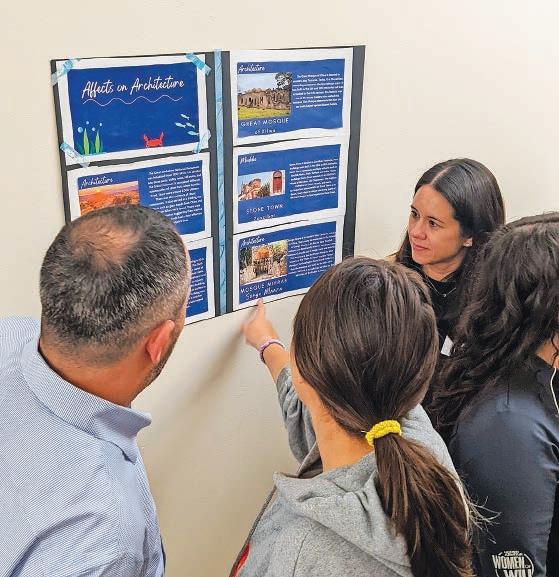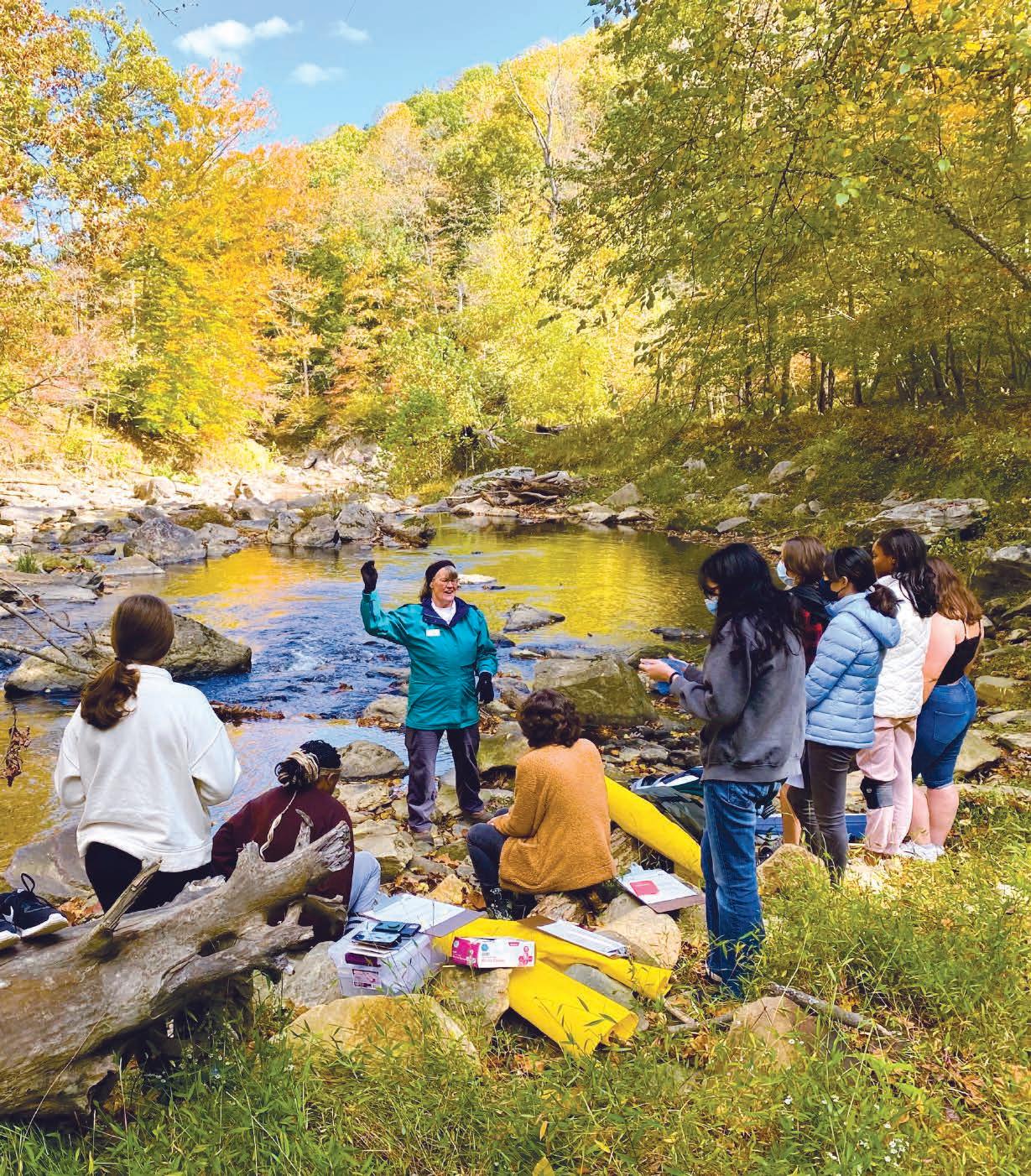
1 minute read
A peek into our classes
Citizen Science class analyzes local water and soil


The CITIZEN SCIENCE course asks students to take their learning outside the classroom. In Mod 2, they ventured out into the field and worked with Virginia Save Our Streams, a local organization dedicated to monitoring the quality of local streams and creeks. As the largest watershed in Fairfax County, Madeira’s 376-acre campus provides a plethora of opportunity and Difficult Run is an exciting field site. Our students’ testing gives an idea of the water quality of numerous waterways and soils in the county.
With visiting scientist Doreen Peters, students identified 374 macroinvertebrates and collaborated to determine whether this area of Difficult Run meets the qualifications for acceptable water. The stream scored 9 on a scale of 0–12, putting it in the “acceptable” range for quality. (If they had found just one more riffle beetle, it would have scored a 10!) The students submitted their data to the Virginia Save Our Streams database, which will then be available to policymakers to use in accordance with the Clean Water Act.
Exploring the world with museum exhibits
The COMPARATIVE GLOBAL STUDIES I course invites 9th graders to learn about early civilizations, focusing on regional interactions and the origins of cultural foundations. This skills-intensive course invites students to think deeply about the different historical categories—social, political, interactions between humans and the environment, culture, and economic (“SPICE ”) themes.
The Museum Exhibit final assessment project asks students to collaborate in selecting three artifacts that illustrate what is unique and important about a region of their choosing. The artifacts must fit one of the “SPICE ” themes and give their audience an introduction to ancient civilization. Recent exhibits include transportation and navigation on the Sea Roads, architecture in Northern Africa, and cultural exchange in the Indian Ocean.










